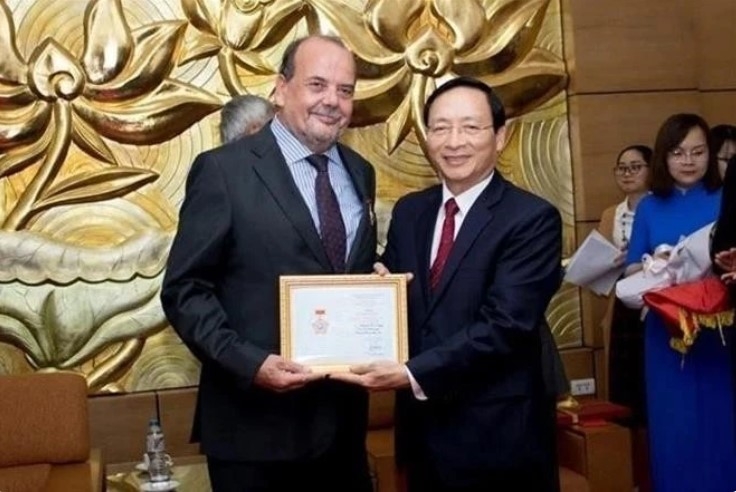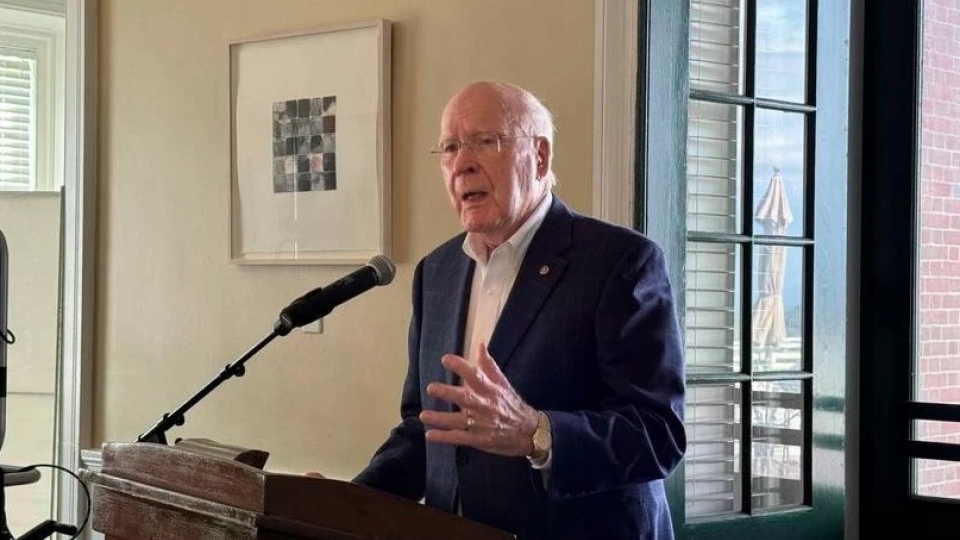Vietnam’s 1975 victory hailed as global milestone in 20th century
Vietnam’s April 30, 1975 victory in its struggle for independence and the Soviet Union’s May 9, 1945 triumph in the Great Patriotic War stand as two of the most glorious milestones in the 20th century, said Secretary of the Communist Party of Chile Central Committee De Negri.

De Negri, who is a former Chilean Ambassador to Vietnam, described these victories as sacred commemorations not only for the Vietnamese and Russian people but also for humanity at large. They served as a powerful reminder of the justice of those struggles and the shared responsibility to protect peace and thwart the resurgence of hegemony and aggression.
Reflecting on Vietnam’s remarkable post-war journey, De Negri painted a vivid picture of a nation rising from devastation. In the mid-1980s, Vietnam was among the world’s poorest countries, scarred by decades of colonial rule and relentless wars.
With infrastructure in ruins, widespread poverty, and a per capita GDP of just US$100–200, over 70% of its population lived below the poverty line. Yet, from these dire circumstances, Vietnam forged an extraordinary path forward.
The launch of the Doi Moi (renewal) policy in 1986 marked a turning point. From ranking 70th in global rice production, Vietnam soared to become one of the world’s leading rice exporters.
By 2020, its per capita GDP climbed to US$2,800, with extreme poverty reduced to below 2%. Vietnam’s economic growth has consistently surpassed global averages, fueled by robust investments in education and infrastructure. Today, the nation is a powerhouse in electronics and apparel exports, attracting industry giants like Samsung, Intel, and LG to establish strategic production hubs.
Transitioning to a socialist-oriented market economy, Vietnam has not only reformed its management model but also affirmed its vision of building a prosperous, peaceful, and independent nation, he said.
Looking back on the enduring bonds between Chile and Vietnam, De Negri underscored Vietnam’s unique strength, which lies not only in its internal resilience but also in the unwavering support of the international community, including the people of Chile. Following Cuba, Chile became the second Latin American nation to establish diplomatic relations with Vietnam, a bond born not merely from state-to-state diplomacy but from a deeply human story forged by pioneering individuals.
In 1969, Salvador Allende, then President of the Chilean Senate, met with President Ho Chi Minh in Hanoi. In their meeting of the final state visit before President Ho Chi Minh’s passing, Allende pledged to establish diplomatic ties with Vietnam if he was elected Chilean President.
True to his word, Allende was elected President in 1970, and just a year later, amid the ravages of war, Chile opened its embassy in Hanoi. It was an act of remarkable courage, symbolising true solidarity demonstrated through concrete actions in the most challenging times when faith must triumph over fear, he added.



